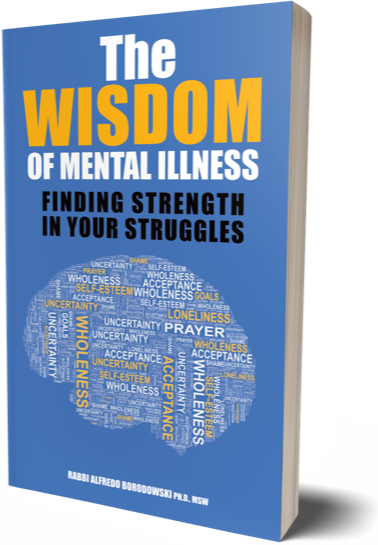Marriage is a beautiful journey, but let’s be real—it’s not all sunsets and slow dances. Stress and conflict are inevitable in any relationship, but how you handle them can make all the difference. Enter positive psychology, the science of well-being and human flourishing, which can be a game-changer in helping you navigate these tough moments with love, understanding, and growth.
Instead of focusing on what’s wrong, positive psychology encourages you to amplify what’s right. By embracing this approach, you can strengthen your bond, manage stress effectively, and turn conflicts into opportunities for deeper connection. Let’s dive into how you can apply these principles to your marriage.
What Is Positive Psychology
Positive psychology is all about focusing on the good things in life. Instead of only looking at problems or what's not going well, it encourages you to build on your strengths and positive feelings. This approach aims to help you feel better and happier by concentrating on what makes life enjoyable and fulfilling. By recognizing what you’re good at and what brings you joy, positive psychology helps you appreciate the good moments and build on them.
This field explores various ideas such as happiness, resilience, and personal growth. It looks at ways to help people become their best selves and live satisfying lives. Positive psychology believes that by understanding and using what you're good at, you can face life's challenges in a better way. It’s about making the most of your strengths and positive emotions to improve your overall well-being.
In simple terms, positive psychology involves practices that boost your mood and improve your relationships. For instance, keeping a journal about positive events, setting goals that matter to you, and doing kind things for others can make life more enjoyable and meaningful. These practices help you create a more fulfilling life by focusing on what’s going well and building on those aspects.
Positive Psychology Techniques for Conflict In Marriage
Positive psychology focuses on enhancing well-being and happiness. When dealing with conflicts in marriage, applying techniques from positive psychology can help shift the focus from problems to solutions. Here’s how you can use these techniques:
1. Focus on Strengths, Not Weaknesses:
When stress hits or arguments arise, it’s easy to zero in on what your partner is doing wrong. But what if, instead of pointing fingers, you started focusing on each other’s strengths?
Take time to recognize and celebrate what your partner does well—whether it’s their problem-solving skills, their patience, or their ability to make you laugh during tough times. Positive psychology teaches us that by acknowledging strengths, we create a foundation of appreciation and resilience that helps buffer against stress.
Try something simple, like listing three things you love about your partner every day. You’d be amazed at how this small habit can shift your mindset from criticism to gratitude, especially during stressful times.
2. Practice Gratitude in the Little Moments:
Gratitude is a cornerstone of positive psychology and a powerful tool in managing marital stress. It’s easy to take each other for granted, especially when life feels overwhelming. But by actively practicing gratitude, you shift the focus from what’s going wrong to what’s going right.
Make gratitude a daily practice. Whether it’s thanking your partner for picking up dinner on a busy night or appreciating how they support you during difficult moments, these little acknowledgments go a long way. Not only does it reduce stress, but it also nurtures a positive emotional environment where conflicts are less likely to escalate.
Start a “gratitude journal” for your relationship. Each night, write down one thing you’re grateful for about your spouse. When tensions run high, reading back through these moments of gratitude can help remind you of the love and strength you share.
3. Use Positive Reframing to Shift Perspective:
Let’s face it, arguments can get ugly. However, positive psychology offers a powerful tool called positive reframing that can help turn conflicts into learning opportunities. Instead of seeing a disagreement as something destructive, reframing helps you view it as a chance for growth.
Next time you find yourselves in a conflict, pause and ask, “What can we learn from this?” Shifting the focus from blame to growth can help de-escalate tensions and foster a more constructive conversation. By reframing the conflict, you’re not just managing stress—you’re actively growing together.
Practice empathy during arguments by putting yourself in your partner’s shoes. Try to see the situation from their perspective, which can help you approach the conversation with more understanding and less defensiveness.
4. Build Emotional Resilience Through Positive Communication:
How you communicate during stressful times can make or break a marriage. Positive psychology emphasizes constructive communication—speaking in a way that strengthens your bond, rather than tearing it down.
Focus on using positive language, even during conflicts. Instead of saying, “You never listen to me,” try something like, “I really appreciate it when you take the time to hear me out—it means a lot to me.” This subtle shift in language helps reduce defensiveness and keeps the conversation grounded in respect.
Practice “active constructive responding.” This means that when your partner shares something with you (good or bad), respond in a way that shows you’re genuinely engaged and supportive. For example, if your spouse tells you about a stressful day at work, instead of just nodding, ask follow-up questions and offer emotional support.
5. Create Positive Rituals to Manage Stress Together:
One of the most powerful ways to use positive psychology in your marriage is to create positive rituals—small, meaningful habits that help you stay connected, even during stressful times. These rituals can be anything from a weekly date night to a simple morning coffee ritual where you check in with each other.
Find a positive ritual that works for both of you and make it a priority. This could be as simple as taking five minutes every night to talk about your day or setting aside time to do something fun together once a week. These small moments of connection act as stress relievers and remind you that your relationship is a safe, loving space, even when life gets tough.
During stressful periods, make sure to incorporate rituals that promote relaxation and togetherness, like going for a walk, cooking a meal together, or practicing mindfulness. These moments of calm can help reduce the emotional intensity of conflicts and bring you closer.
Final Thoughts: Growth Over Perfection
No marriage is perfect, and that’s okay. Positive psychology isn’t about avoiding stress or conflict altogether, but about how you approach and navigate them together. By focusing on strengths, practicing gratitude, reframing conflicts, and creating positive rituals, you can manage stress in a way that strengthens your relationship rather than weakens it.
At the end of the day, it’s not about being perfect—it’s about showing up, with love and resilience, ready to grow together through the highs and lows. So next time stress or conflict rears its head, remember: you’ve got the tools to handle it, and every challenge is just another opportunity to deepen your connection.
FAQs
1. Can creating a "couple’s vision board" help in managing marital conflicts?
Yes, creating a couple’s vision board can help by visualizing shared goals and aspirations. This shared focus can align both partners' efforts, reduce conflict by fostering a sense of teamwork, and remind them of their mutual objectives.
2. How can couples practice positive reinforcement to strengthen their marriage?
Positive reinforcement involves acknowledging and rewarding desired behaviors. By consistently praising and encouraging each other, couples can reinforce positive interactions and behaviors, which helps build a stronger and more supportive relationship.
3. What are some practical ways to implement "random acts of kindness" in a marriage?
Implementing random acts of kindness, such as leaving a sweet note or doing something thoughtful without occasion, can strengthen the relationship by creating positive moments and reinforcing affection. These small gestures help maintain a positive atmosphere and reduce stress.












